Description
ABSTRACT
An Overview of the Status, Duties and Responsibilities of Secretaries of Public Companies in Nigeria
Gogo Otuturu*
The position of the secretary of a company has evolved over the centuries from the lowly status of a mere servant or clerk to that of a high-ranking officer of the company. He is no longer a mere servant or clerk. He is now an officer of the company with extensive duties and responsibilities. This paper examines the status, duties and responsibilities of secretaries in Nigeria. It draws a distinction between the secretary of a private company and public company in terms of the requirements for their appointment and removal from office. It states that the secretary of a public company is not only a high-ranking officer but also the only employee in the corporate set up whose employment is protected by statute. It suggests that the appointment of the secretary of a public company should be restricted to persons who belong to certain regulated professions in line with the modern corporate practice of appointing the secretary in a dual capacity as Secretary/Legal Adviser, Secretary/Chief Accountant or Secretary/Head of Administration respectively.
INTRODUCTION
The position of the secretary of a company has undergone many changes over the years. It has evolved from that of a lowly status as a mere servant or clerk1 to that of an officer of the company.2 In some cases, the secretary has been regarded as a principal officer3 and, as such, is part of the management of the company.4
This paper critically examines the status, duties and responsibilities of secretaries of public companies in Nigeria. It draws a distinction between the secretary of a private company and the secretary of a public company in terms of the requirements for their appointment and removal from office. It states that the secretary of a public company is not only a high-ranking officer of the company but also the only employee in the corporate set up whose employment is regulated by statute and, therefore, has statutory flavour.
The paper suggests that the appointment of the secretary of a public company should be restricted to persons who belong to certain regulated professions in line with the modern corporate practice of appointing the secretary of a public company in dual capacities as Secretary/Legal Adviser, Secretary/Chief Accountant or Secretary/Head of Administration respectively. It also suggests that the Companies and Allied Matters Act5 should be amended to reflect the relevant professional qualifications required to discharge the emergent dual duties of the secretary of a public company in modern complex business environment.
* LL.M., BL, CBA, DipEd, ANITD, ACIArb (Nigeria). Lecturer, Faculty of Law, Niger Delta University, Wilberforce Island, Bayelsa State.
- Barnett Hoares & Co. v South London Tramway Co. Ltd (1887) 18 QBD 815 CA.
- Panorama Development (Guildford) Ltd v Fidelis Furnishing Fabrics Ltd (1971) 2 QB 711 CA.
- Okeowo v Migliore (1979) 11 SC 138 SC.
- Wimpey Ltd v Balogun (1986) 3 NWLR (Pt 28) 324 CA.
- Cap C20, Laws of the Federation of Nigeria 2004 (hereinafter referred to as CAMA or simply as “the Act”).

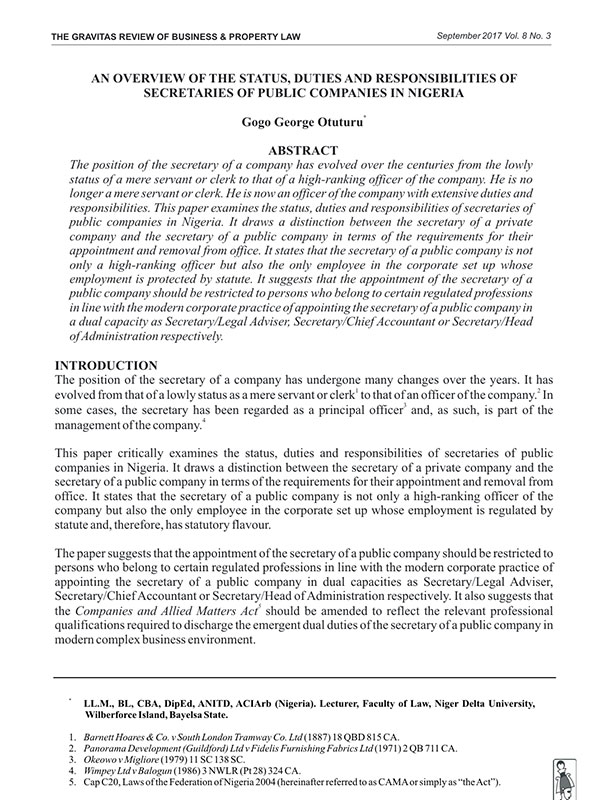
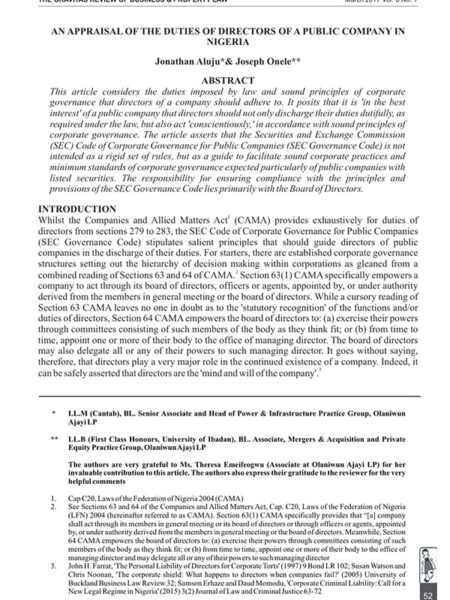
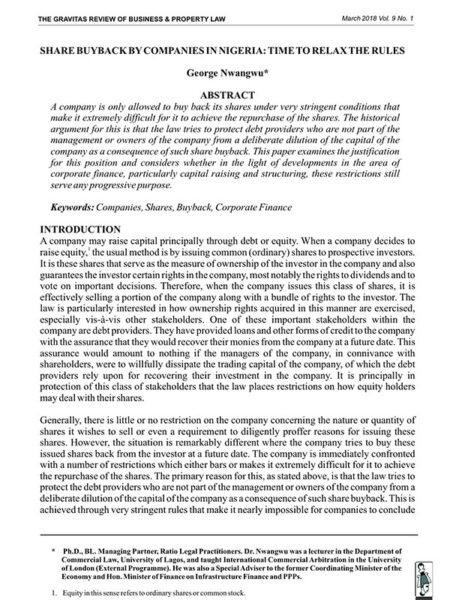
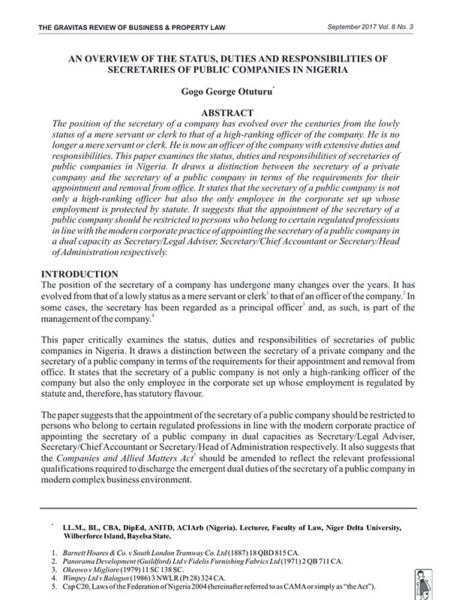
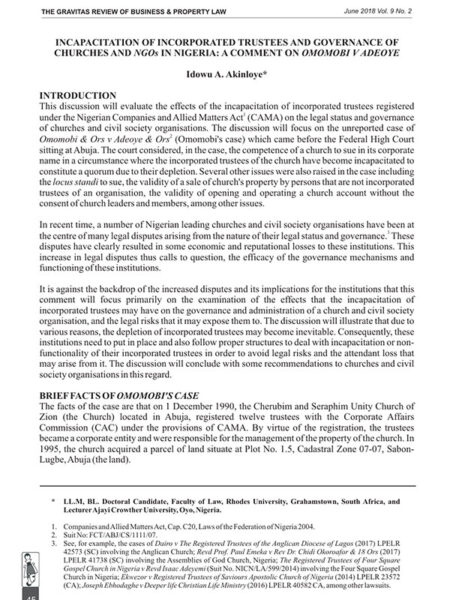


Reviews
There are no reviews yet.